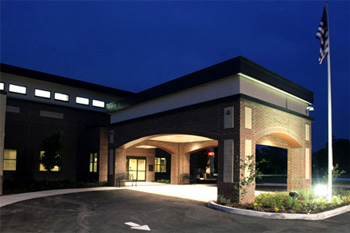
Commercial real estate covers varied sectors such as apartment buildings, offices, industrial spaces, and retail outlets. Certain areas perform better than others in an economic downturn. Which commercial sector will be the most stable during a recession?
Health-Care
Health-care real estate will do better than other commercial sectors because the field involves a necessity. Health-care will attract consumers - regardless of the economy. An individual might wait to make a large purchase or take a trip until the economy improves but people will not put off health care until after a recession.
Unfortunately though, the sad reality is that people have delayed a trip to the doctor because they do not have the proper insurance. The Obama overhaul of health care, however, is expanding the availability of health insurance. As a general rule though, consumers have (and will continue to) seek immediate help for serious health issues.
REITs
A similar necessity drives office real estate more than the hospitality industry in economic turmoil. Business owners might cut back on corporate trips during a recession but, most likely, entrepreneurs will hold on to their offices. Hotel REITs might not perform as well as other categories. Yet health-care REITs can move upward during poor economic times. Jeff Theiler, an analyst at Green Street Advisors, a REIT research firm based in Newport Beach, California, said that health-care REITs made the most acquisitions in the industry last year.
Health-Care Acquisitions
Ventas Inc., the largest U.S. owner of senior housing and assisted-living facilities, has agreed to acquire its rival, Nationwide Health Properties Inc., for $5.8 billion – the latest and largest biggest deal in a string of acquisitions by publicly traded health-care, real-estate companies in recent times. After this acquisition closes in the third period, Ventas Inc. will own 1,311 properties in 47 states, the District of Columbia, and two Canadian provinces. Their property breaks down into the following categories – senior housing (643), skilled nursing (379), medical facilities (234), hospitals (47), and other (8).
Nationwide
Consumers might wonder where Nationwide Health Properties Inc. made its mistake. After all, if health-care real estate is viable, why didn't this company survive the commercial crisis? Theiler believes that Nationwide did mot market as aggressively as other health-care companies. For example, Ventas has been active in the market. In October, 2010, Ventas acquired the assets of Atria Senior Living. In December, the company made a $6 billion HCP purchase.
Rising Demand
With more people accessing health insurance, the evolving trend towards outpatient facilities, and an aging population, there will be a growing demand for medical-office space.
Other Players
Of course, Ventas Inc. is not the only entity interested in health-care acquisitions. During 2010, health-care companies acquired $11.7 billion in medical-office and senior-living facilities. Following the February 28 announcement by Ventas, Health Care REIT Inc. agreed to acquire almost all of the real-estate assets of Genesis HealthCare, a privately held company based in Kennett Square, Pa., for $2.4 billion. Health-care REITs are not standing on the sidelines because they recognize the market potential of health-care real estate.
Do You Expect A Continued High Demand For Health-Care Real Estate?
Image courtesy of hamiltonhospital.org